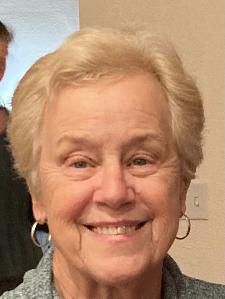From Challenges to Triumphs: Sally’s and M’s Story of Advocacy and Resilience
 |
Sally’s journey as a Court Appointed Special Advocate (CASA) volunteer began when she retired from a fulfilling career in teaching. Eager to continue helping others, Sally embraced the opportunity to make a difference in the lives of children in foster care. Sally says, “Life has a way of carrying us along on a wave. Sometimes there is smooth sailing, sometimes there are storms with rough, choppy water. What is our destination? We don’t always know, but most of us are looking for some type of safe harbor, where life can be calmer and more predictable.” In 2016, Sally met M, a sixth grader living in her first resource home. Initially, M seemed to be doing well in school, and her resource parents appeared supportive. However, it soon became clear that emotional abuse was present in the home. Thanks to a sympathetic social worker, M was quickly placed in a new home, but her journey was far from over. Throughout their time together, Sally and M shared many memorable experiences, from horseback riding lessons to summer camps. These activities helped M build new experiences, meet new people and find joy amid her challenges. |
|
As M entered high school, she faced overwhelming academic and emotional challenges. Despite Sally’s proactive efforts as her Educational Rights Holder, M struggled with depression and school failure and disliked Sally’s efforts to get her back on track. The bright light of that year was her enjoyment of singing and dancing and being with friends. Then the COVID-19 pandemic hit, intensifying these difficulties, isolating M from her friends and activities, and worsening her situation at home. Unhappiness, accusations, mistrust on the part of the resource parents fueled M’s depression and withdrawal. She was stuck in a bad situation, and Sally was not fully aware of how bad things actually were. There were many talks with the social worker about changing placements, but it was a difficult time to make changes. Throughout M’s sophomore year M was stuck with remote learning, no friends, and no fun extracurricular activities. When school started back in person her junior year there was a new attitude! M knew she could do well and was looking to the future and graduating from high school. She qualified for a 504 plan which provided her with accommodations to support her education, allowing her to take a study hall and improve her. By her junior year, M was excelling in school, participating in honor choirs, and looking forward to graduation. Senior year was a triumph in many ways. M was in both honor choirs, had a healthy relationship with a boyfriend, and was earning mostly As in her classes and even went on to the chorus trip to perform in Disneyland. Yet, the resource home was not meeting her emotional needs. With the help of a new social worker, M moved to a supportive home in January 2023, allowing her to thrive in a nurturing environment. M also reconnected with an aunt, building a loving relationship that provided a crucial safe harbor. Surrounded by supportive family and friends, M graduated high school and entered transitional housing, ready to embrace her independence. M is now a student at the local junior college and is living in an apartment, having agreed to participate in extended foster care which provides her with services and supports until age 21 to help her transition successfully into independent adulthood. Even though Sally is no longer M's CASA advocate, their bond remains strong. Sally continues to admire M’s resourcefulness and enthusiasm for life, cherishing their friendly visits. Sally's CASA journey was driven by her genuine dedication to fulfilling the role's responsibilities to the best of her abilities. She highlights the significance of hope, long-term commitment, and empathy in her advocacy work. Sally firmly believes that possessing these qualities is crucial for those contemplating becoming CASA volunteers. By sharing her story, Sally hopes to inspire others to join the CASA mission and make a lasting difference in the lives of children in foster care. |
|

